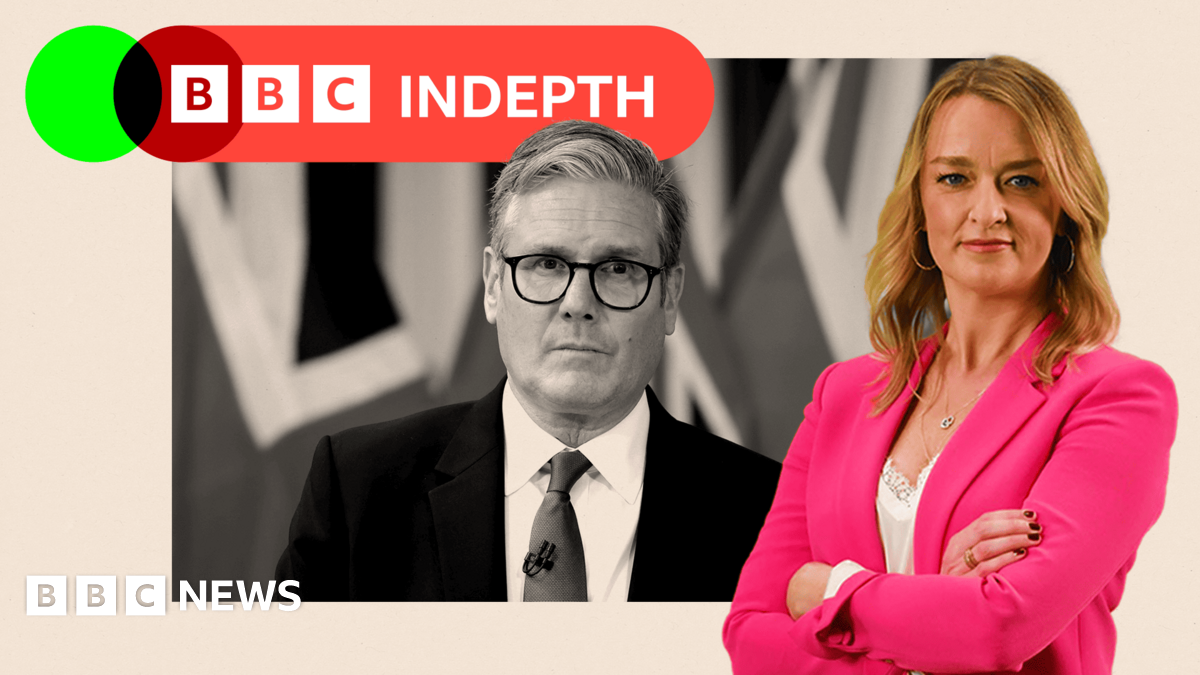UK And Iran: Historical Baggage And The Path Forward

Welcome to your ultimate source for breaking news, trending updates, and in-depth stories from around the world. Whether it's politics, technology, entertainment, sports, or lifestyle, we bring you real-time updates that keep you informed and ahead of the curve.
Our team works tirelessly to ensure you never miss a moment. From the latest developments in global events to the most talked-about topics on social media, our news platform is designed to deliver accurate and timely information, all in one place.
Stay in the know and join thousands of readers who trust us for reliable, up-to-date content. Explore our expertly curated articles and dive deeper into the stories that matter to you. Visit Best Website now and be part of the conversation. Don't miss out on the headlines that shape our world!
Table of Contents
UK and Iran: Untangling Historical Baggage and Forging a Path Forward
The relationship between the United Kingdom and Iran is a complex tapestry woven with threads of historical animosity, periods of cooperation, and enduring mutual interests. From the Anglo-Persian Wars to the current nuclear impasse, the two nations have navigated a turbulent path marked by significant challenges. Understanding this historical baggage is crucial to comprehending the current state of affairs and exploring potential avenues for a more constructive future.
A History Steeped in Conflict and Cooperation:
The UK and Iran (then Persia) have a long history of interaction, often characterized by British influence and Iranian resistance. The 19th century saw the Anglo-Persian Wars, driven by British imperial ambitions and competition for regional dominance. The discovery of oil in the early 20th century further intensified this relationship, leading to significant British involvement in Iranian affairs and resentment amongst Iranians regarding perceived exploitation of their natural resources. This period laid the groundwork for much of the mistrust that persists today.
<br>
Post-Revolution Tensions and Diplomatic Challenges:
The Iranian Revolution of 1979 marked a significant turning point. The overthrow of the Shah, a close ally of the UK and the US, led to a complete rupture in relations. The subsequent hostage crisis at the US embassy in Tehran further exacerbated tensions, casting a long shadow over Anglo-Iranian relations for decades. Since then, disagreements over Iran's nuclear program, regional influence, and human rights record have consistently hampered attempts at meaningful dialogue.
Key Points of Contention:
- Nuclear Program: The ongoing debate surrounding Iran's nuclear ambitions remains a major obstacle to improved relations. International sanctions and concerns about proliferation continue to dominate the narrative. [Link to a relevant article on the Iran nuclear deal]
- Regional Influence: Iran's regional activities, particularly its support for groups perceived as proxies in various conflicts, are a source of concern for the UK and its allies. This fuels tensions and complicates any efforts at reconciliation.
- Human Rights: Concerns regarding human rights in Iran, including freedom of speech and the treatment of minorities, remain a significant point of contention and hinder efforts to foster closer ties. [Link to a Human Rights Watch report on Iran]
Towards a More Constructive Future?
Despite the deep-seated historical issues, there are potential pathways towards a more constructive relationship. Both countries share an interest in regional stability and combating terrorism. Economic cooperation, particularly in areas like energy and trade, could also offer significant mutual benefits. Open dialogue and a willingness to address historical grievances are essential prerequisites for any meaningful progress.
<br>
The Path Forward Requires:
- Direct Dialogue: Consistent and open diplomatic engagement is crucial to fostering mutual understanding and addressing points of contention.
- Mutual Respect: Acknowledging and respecting each other's perspectives and sensitivities is paramount.
- Focus on Shared Interests: Identifying and cooperating on areas of mutual interest, such as combating climate change or promoting regional security, can help build trust.
- Addressing Human Rights Concerns: The UK must consistently raise concerns about human rights in Iran while also engaging in constructive dialogue to promote positive change.
The relationship between the UK and Iran remains fraught with challenges, but it is not insurmountable. By acknowledging the historical baggage, engaging in constructive dialogue, and focusing on shared interests, both nations can pave the way for a more stable and productive future. The path ahead is undoubtedly challenging, but the potential rewards of improved relations are substantial for both countries and the wider region.

Thank you for visiting our website, your trusted source for the latest updates and in-depth coverage on UK And Iran: Historical Baggage And The Path Forward. We're committed to keeping you informed with timely and accurate information to meet your curiosity and needs.
If you have any questions, suggestions, or feedback, we'd love to hear from you. Your insights are valuable to us and help us improve to serve you better. Feel free to reach out through our contact page.
Don't forget to bookmark our website and check back regularly for the latest headlines and trending topics. See you next time, and thank you for being part of our growing community!
Featured Posts
-
 Nba Finals Run How Bradley Beals 330 K Price Tag Benefited The Pacers
Jun 23, 2025
Nba Finals Run How Bradley Beals 330 K Price Tag Benefited The Pacers
Jun 23, 2025 -
 A True American Success Story Nick Khans Comments On Pat Mc Afees Wwe Journey
Jun 23, 2025
A True American Success Story Nick Khans Comments On Pat Mc Afees Wwe Journey
Jun 23, 2025 -
 Josh Hart Trade Knicks Considering Swap For High Value Wing And Center
Jun 23, 2025
Josh Hart Trade Knicks Considering Swap For High Value Wing And Center
Jun 23, 2025 -
 Post Game Report Technical Awarded To Tony Bradley Following Hartenstein Dispute
Jun 23, 2025
Post Game Report Technical Awarded To Tony Bradley Following Hartenstein Dispute
Jun 23, 2025 -
 Pacers Nembhard Delivers With Late Three Point Shot Nba Action
Jun 23, 2025
Pacers Nembhard Delivers With Late Three Point Shot Nba Action
Jun 23, 2025
Latest Posts
-
 Oklahoma City Buzzes Thunder Fans Prepare For Game 7 Watch Parties
Jun 23, 2025
Oklahoma City Buzzes Thunder Fans Prepare For Game 7 Watch Parties
Jun 23, 2025 -
 Nba Finals 2025 Prediction A Hall Of Famers Take On Jalen Williams
Jun 23, 2025
Nba Finals 2025 Prediction A Hall Of Famers Take On Jalen Williams
Jun 23, 2025 -
 Nba Finals Game 7 Chet Holmgrens Quest For Peak Performance
Jun 23, 2025
Nba Finals Game 7 Chet Holmgrens Quest For Peak Performance
Jun 23, 2025 -
 Chet Holmgrens Game 7 Can He Deliver His Best Finals Performance
Jun 23, 2025
Chet Holmgrens Game 7 Can He Deliver His Best Finals Performance
Jun 23, 2025 -
 Tattle Lifes Downfall How A Gossip Website Ruined Lives And Lost Its Anonymity
Jun 23, 2025
Tattle Lifes Downfall How A Gossip Website Ruined Lives And Lost Its Anonymity
Jun 23, 2025
